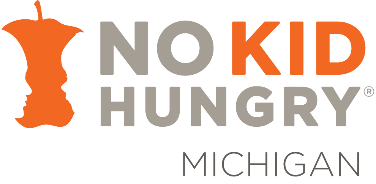POSTED BY: DIEGO ALONSO

This Native American Heritage Month, we are celebrating the rich and diverse cultures, traditions, and histories and acknowledge the significant contributions of Native people. We also highlight how Native and Indigenous peoples are working every day to conquer challenges both historic and present. In Oklahoma, the Chickasaw Nation is using the strength of their community to ensure all kids have access and choice of healthy food.
Joy Standridge will never forget that day.
As part of the Chickasaw Nation’s traveling garden (Osapa Tunowa) program that brings fresh produce to the community, they were delivering some meals to families in a rural area. For this particular family, transportation was a challenge to get the food they needed.
“I was really struck by the conditions of the home and the grandmother,” Standridge shared. “The grandmother was the guardian, but she was in a wheelchair and the home was not handicap accessible. Four of her grandkids shared the home with her.”
“Getting to deliver fresh produce to the home was so meaningful to me because the grandmother and her grandchildren were filled with gratitude and excitement,” she added. “The experience impressed upon me the value of the work that we do…Those kids were able to have a snack that day and that grandmother was able to rest and not worry about where their next meal was coming from.”
Standridge is the deputy director of the Chickasaw Nation WIC and child nutrition department, which serves a 13 county tribal treaty area in south central Oklahoma. In this rural community, families sometimes drive up to 30 miles to find a grocery store, and there are economic struggles. But the Nation is resilient, and people look after one another.
“What I love about this community [is that] we are a very close knit community where you definitely get the sense that you are family and neighbors,” Standridge shared. “Culturally as indigenous people, it’s really more about the collective whole and not just about the individual.”
The Chickasaw Nation has been intentional about promoting the Chickasaw language and culture in the community. And they know kids and families can only realize their full potential and reconnect to their culture if they have access to the food they need.
As part of the full suite of programs the Nation administers (including WIC and Summer EBT for Children programs among others), their Packed Promise Program aims to connect families struggling with transportation to receive healthy food. They ship a 25 pound box of shelf stable food to eligible children. The process mimics online shopping and kids can choose from five different meal kits.
“I’ve had one family describe the experience…the first time they received the food boxes, it felt like Christmas,” explained Standridge. “For those children who really experience true hunger, the relief they express as pure excitement and joy by receiving much needed food, that’s always a wonderful feeling to know that we helped make a difference.”
With the support of No Kid Hungry, the Chickasaw Nation was able to expand the program to counties adjacent to their treaty territory, helping approximately 225 additional clients every month. Many tribal families live outside of the Chickasaw Nation’s boundaries.
“From the depths of my heart, I am expressing gratitude on behalf of that child,” said Standridge. “We serve approximately 1,600 children throughout our treaty territory and I have the privilege of getting to see their faces and to experience that joy…You have contributed to a child feeling safe and secure. They can go to sleep without feeling their tummies rumble, and they can fall asleep easier.”
For Standridge and other staff at the Chickasaw Nation, this is more than a job. Taking care of children is part of the Nation’s culture and soul.
“My hope is that they wouldn’t have the concern of being hungry,” she said while wiping some tears,” our children are so deserving to be just like any other child and feel the love and security and stability in their home…You get really connected to the families that we serve.”

